The Leakey Foundation’s prestigious Baldwin Fellowship program builds the future of science by supporting advanced education for aspiring researchers around the world.
Since 1978, the Baldwin Fellowship has worked to build scientific capacity in the regions where fossils and wild primates are found. We are proud to introduce the outstanding spring 2021 cohort of new and returning Baldwin Fellows.
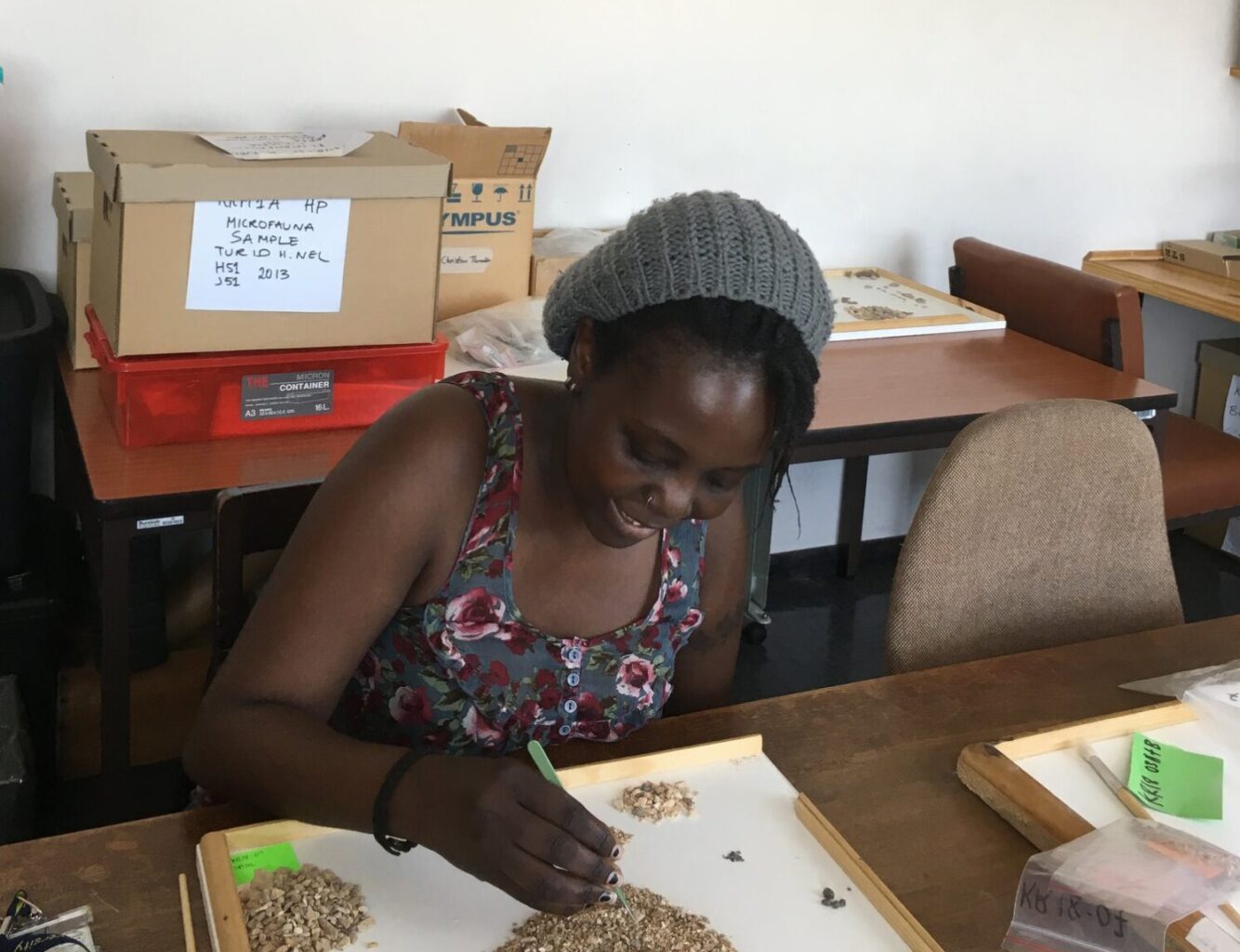
Pamela Akuku Achieng, Kenya
Pamela Akaku Achieng earned her undergraduate degree in anthropology at the University of Nairobi, and a master’s degree from the University of Witwatersrand. After completing her undergraduate studies, she participated in the Koobi Fora and Turkana Basin Institute field schools in Kenya where she trained in ecology, geology, archaeology, vertebrate paleontology, paleoecology, and human evolution.
Pamela has been accepted into the doctoral program at the Catalan Institute of Human Palaeoecology and Social Evolution (IPHES-CERCA) at the Rovira i Virgili University under the supervision of Palmira Saladié. She is also funded by the Canadian government (SSHRC) and co-supervised by Dr. Julio Mercader from the University of Calgary. For her doctoral research she proposes a taphonomic and taxonomic study of Pleistocene fauna from Olduvai Gorge, with the aim of understanding the relationships between fauna and hominins, as well as subsistence strategies, site formation processes, and paleoenvironmental reconstruction.
Pamela plans to return to Kenya to work at institutions such as the University of Nairobi, the National Museums of Kenya, or the British Institute of Eastern Africa. She would like to help African students train in archaeology and anthropology so that more African researchers will become involved in studying African archaeology.
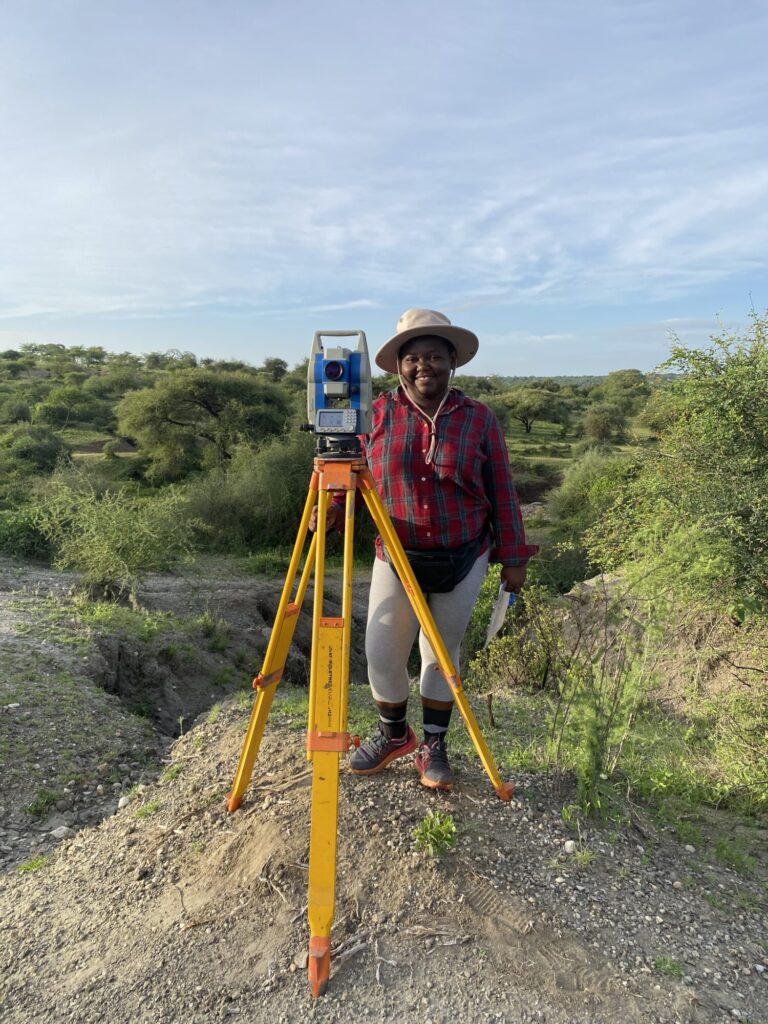
Mariam Bundala, Tanzania
Mariam Bundala is a returning Baldwin Fellow and PhD candidate at the University of Calgary where she studies landscape use and how environmental change has impacted human evolution. For her PhD project, she is analyzing phytoliths from the Manyara Beds in Tanzania, which are among the most important Middle Pleistocene sequences in East Africa. Her research could significantly contribute to our knowledge on the appearance of archaic Homo sapiens and the disappearance of the Acheulean Industry in Africa.
Mariam holds a position as an assistant lecturer in the Department of Archaeology and Heritage Studies at the University of Dar es Salaam, Tanzania, where she is the only woman on the academic staff. After earning her doctorate, she intends to return there as a lecturer and a senior researcher.
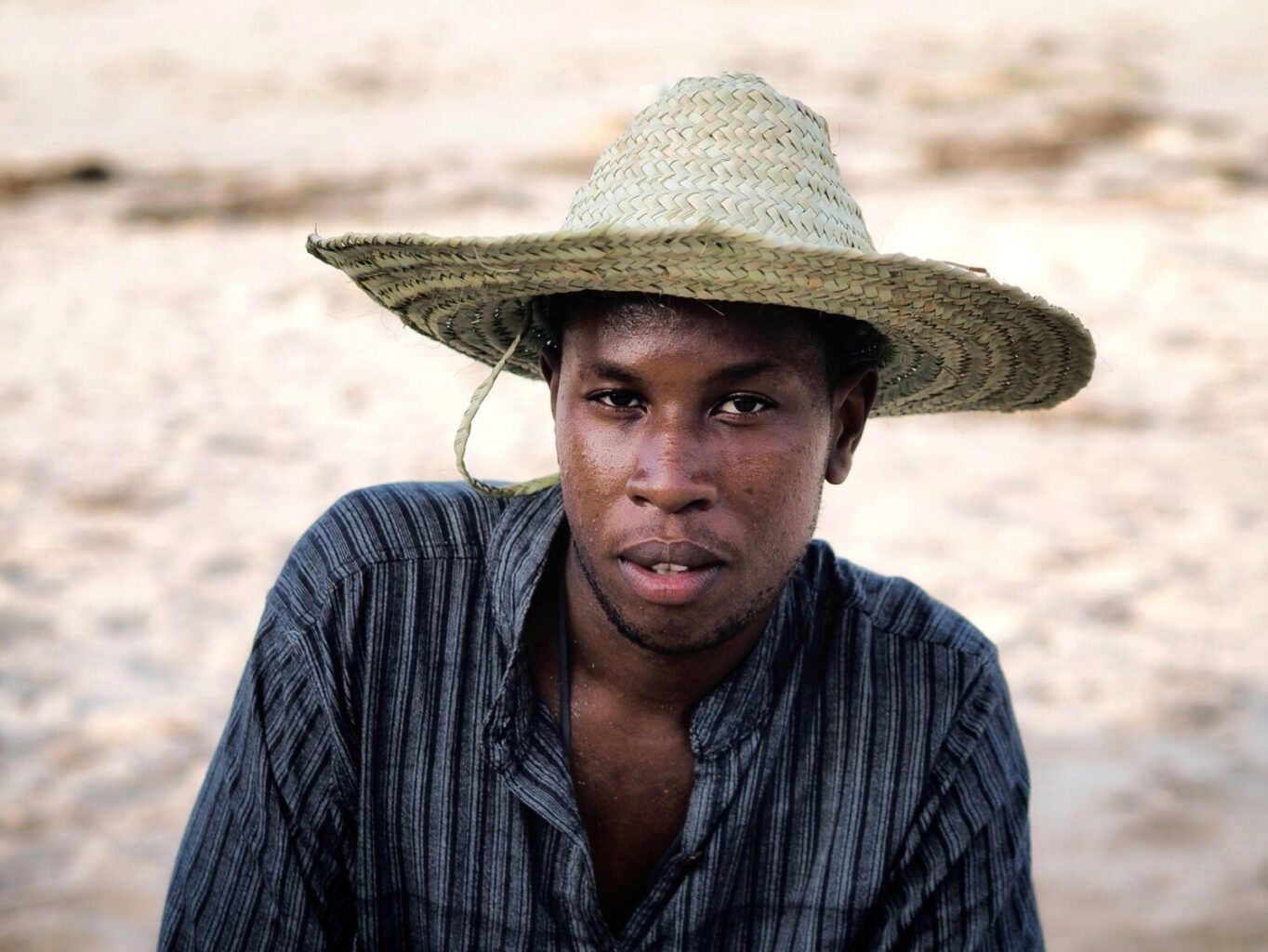
Alex Chege, Kenya
Alex Chege attended the University of Western Australia for his undergraduate studies where he discovered an interest in understanding the origins of human behavior and the genetic structures of human populations. After working with an international team of research scientists at Operation Wallacea in the Calakmul Biosphere Reserve in Mexico, Alex joined the Institute of Primate Research and the Karura Forest Association as a research assistant for both organizations’ black-and-white colobus monkey conservation project. This is where he met Richard Leakey who encouraged him to join the Turkana Basin Institute and pursue a doctoral degree at Stony Brook University in New York.
Alex was accepted to the Ecology and Evolution PhD Program at Stony Brook and he will begin in August 2021 under the mentorship of Dr. Leakey and Dr. Catherine Markham. Alex will contribute to our understanding of hominid and primate dietary evolution with a dissertation focused on the role of primate adaptations to coastal habitats. His project will be based at field sites on the coast of his home country where primates have been observed foraging on marine resources.
This project will be a landmark collaboration with advisors at Stony Brook and institutions and scientists in Kenya. After graduating, Alex intends to continue research in primate behavioral ecology and evolution with hopes of collaborating with international groups based inside and outside of Kenya.
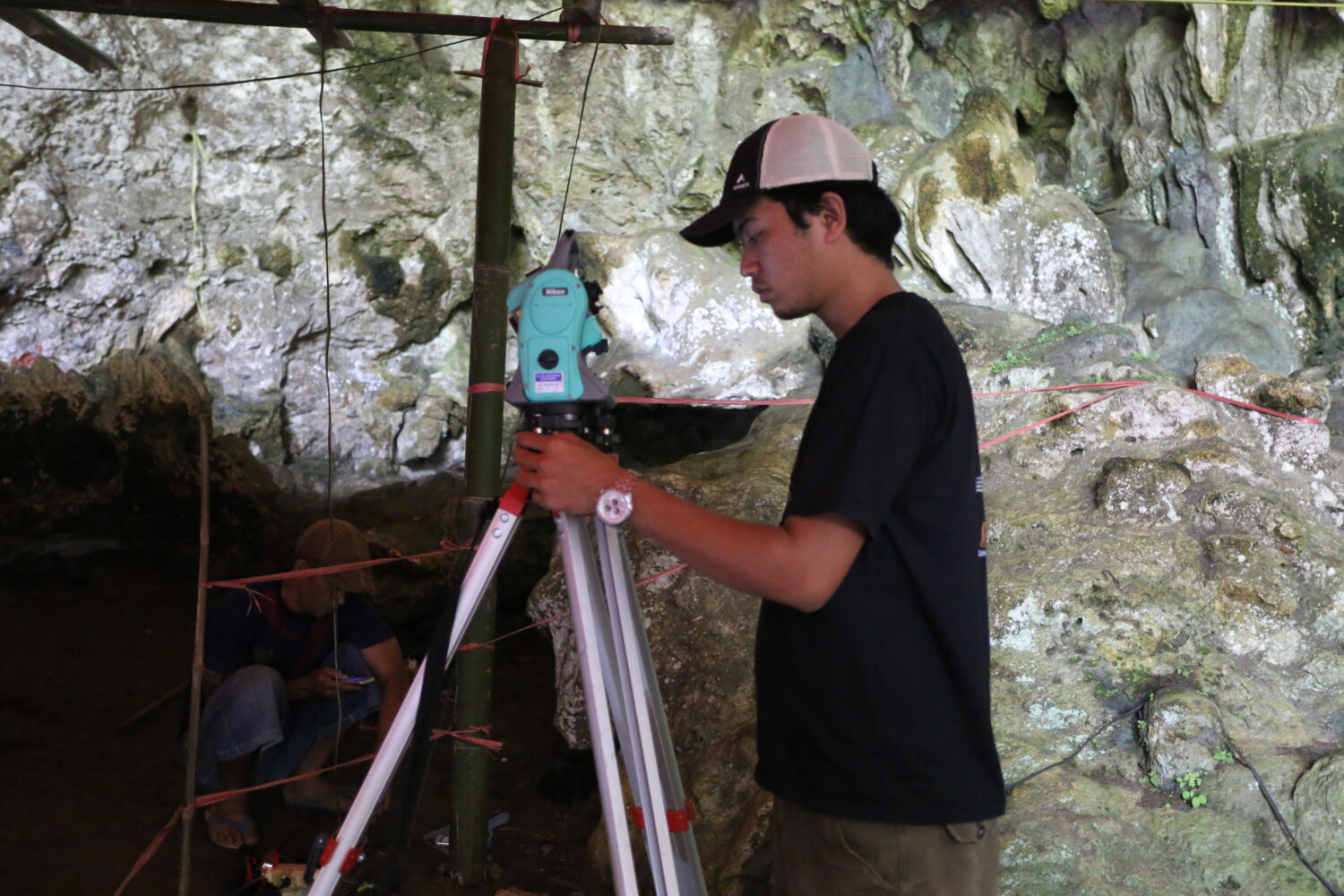
I Made Agus Julianto, Indonesia
I Made Agus Julianto is an Indonesian citizen, born and raised on the island of Bali. In 2016, he graduated with an undergraduate degree in Archaeology from Udayana University. During his studies, he took courses covering a wide range of topics in archaeology, such as Indonesian prehistory, excavation methods, stone tool and ceramic analysis, paleoanthropology, paleography, and maritime archaeology. He also participated directly in archaeological research, including a special student research training opportunity at Liang Bua, a large limestone cave on the island of Flores where the skeletal remains of Homo floresiensis were discovered in 2003. There he worked alongside Indonesian archaeologists Dr. Thomas Sutikna, Wahyu Saptomo, and Jatmiko, as well as Dr. Matt Tocheri. This experience solidified his desire to become a professional archaeologist.
Agus is a first-year student in the Master of Science (MSc) in Archaeological Science program at Lakehead University in Thunder Bay, Canada, with Matthew Tocheri as his advisor. For his thesis research, he plans to use Geographic Information Systems (GIS) to explore and analyze spatial data from the site of Liang Bua.
Upon completing his degree, he will return to Indonesia and seek permanent employment as a researcher at either the Division Conservation and Archaeometry at the Indonesian National Research Centre for Archaeology in Jakarta, or as an instructor of archaeology or prehistory at the undergraduate level at an Indonesian university.
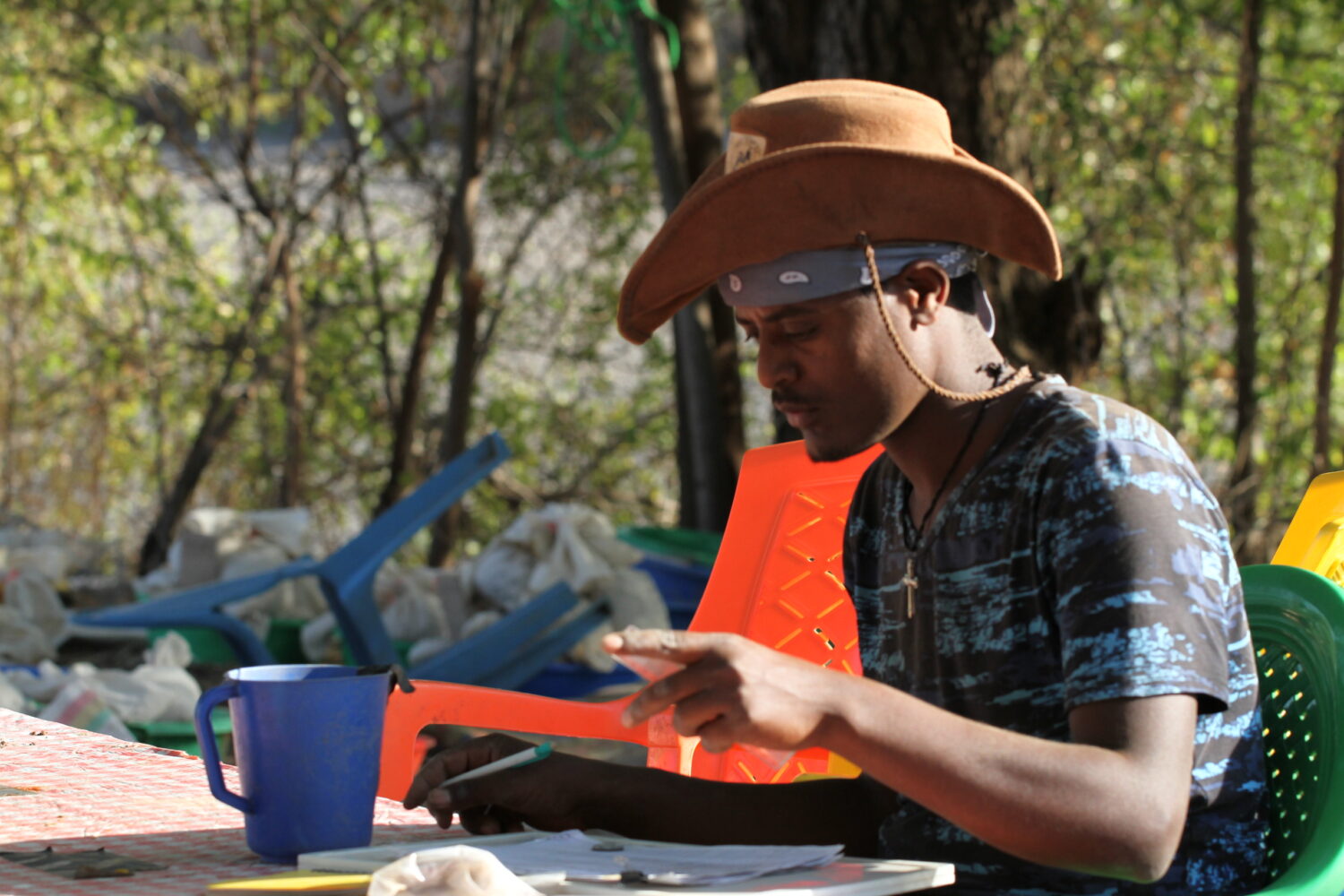
Tewabe Negash Kassaw, Ethiopia
Tewabe Negash’s desire to learn about prehistoric life and the evolution of our ancestors was developed through coursework and field training experiences during his undergraduate and master’s education at Addis Ababa University. As an undergraduate, he completed archaeological field training at the sites of Melka Kunture, Chancho, and Washa Michael. After earning his master’s degree, he began work as an archaeology curator at the National Museum of Ethiopia.
Tewabe plans to join the Anthropology PhD program at Colorado State University in fall 2021 with Michael Pante as his advisor. In his doctoral research, he wishes to gain insight into the paleoenvironmental and paleogeographical context of the extinction of Australopithecus and the origin of the genus Homo.
Tewabe’s motivation for pursuing a PhD in anthropology is fueled by his goal to become a research scientist and contribute to science in his home country of Ethiopia. After earning his PhD, he would like to be a research scientist in Ethiopia at either the Center for Human Origins of Addis Ababa University, or the Authority for Conservation of Cultural Heritage.
Charles Kivasu Maingi, Kenya
Charles Kivasu Maingi earned his undergraduate and master’s degree from the University of Nairobi. His focus was on conservation. His interest in primate behavioral ecology began when he did his thesis on the Tana River mangabey (Cercocebus galeritus). Charles has worked as a research assistant on the Tana River Mangabey Nutrition Ecology and Conservation Project in Kenya, led by Dr. Stan Kivai, head of the Conservation Biology Department at the Institute of Primate Research at the National Museums of Kenya. Through this mentorship, he honed skills such as monitoring primate behavior, plant phenology measurement, habitat quality assessment, as well as primate food sampling and processing.
Charles was accepted into the PhD program in Anthropology at Rutgers University. His PhD research will focus on primate feeding behavior and nutritional ecology, under the supervision of Professor Ryne Palombit. Two of his career goals are to lead and manage primatological programs throughout Kenya and to share knowledge about primates and evolution with the greater public.
After completion of his PhD studies, he plans to return to Kenya to continue working as a researcher and educator in the Conservation Biology Department of IPR.

Winfred Wambui Mbogo, Kenya
Winfred Wambui Mbogo earned her undergraduate degree in anthropology at the University of Nairobi. In 2019, she joined the Turkana Basin Institute as the field school resident director. Immersion in the field environment increased her understanding of human evolution and ignited her passion for paleoanthropology.
Inspired by Dr. Richard Leakey’s idea that understanding human evolution requires collaborations across multiple disciplines including archaeology, ecology, anthropology, paleontology, geology, and biology, Winfred chose to study at Stony Brook University because the Anthropological Sciences PhD program (IDPAS) is interdepartmental and interdisciplinary. In addition, several of the faculty in the IDPAS program have active projects in the Turkana Basin. The affiliation that Stony Brook University has with Turkana Basin Institute makes it even more suitable since one of her goals is to participate in the vibrant, field-based research programs in the Turkana Basin. Winfred’s academic advisor will be Dr. Isaiah Nengo of Stony Brook and the Turkana Basin Institute. She will be studying the evolution of inner ears in anthropoids with Prof. Fred Spoor from the Natural History Museum, London.
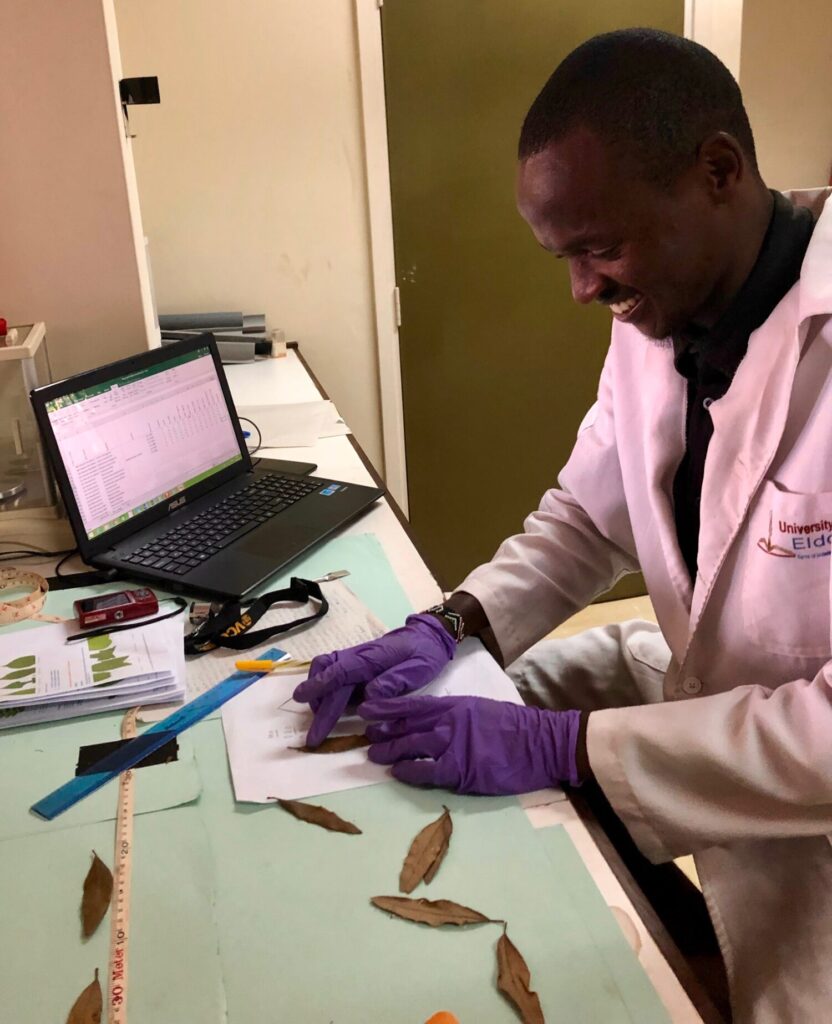
Venanzio Njuguna Munyaka, Kenya
Venanzio Njuguna Munyaka attended the University of Eldoret, Kenya for his undergraduate degree. He is currently an intern in the Palynology and Paleobotany Section, Earth Sciences Department at the National Museums of Kenya. During his internship, he has contributed to projects which apply the study of pollen, diatom and phytolith analyses to both modern and fossil collections to reconstruct environments through time. He attended the 2019 Koobi Fora Training and Research Program (KFTR), an international 6-week program jointly administered by the George Washington University and the National Museums of Kenya. He successfully completed a research project titled “Impact of Nomadic Pastoralism on modern landscapes and vegetation cover of the Koobi Fora Region (East Turkana).”
Venanzio has been accepted into the master’s program in the Department of Geosciences at Baylor University to work with Daniel Peppe as his advisor. At Baylor, Venanzio will study fossil leaves from the Koru region in western Kenya. He will use the fossil leaves to reconstruct the vegetation, paleoenvironment, and paleoclimate of the region, which will allow us to better understand the habitat preferences of early hominoids and catarrhine primates.
His ultimate career goals are to return home with the skills acquired during his graduate training and work at the National Museum of Kenya, where he can utilize his knowledge to advance research in Kenya and assist other young Kenyans and African students develop a career in human evolution research.
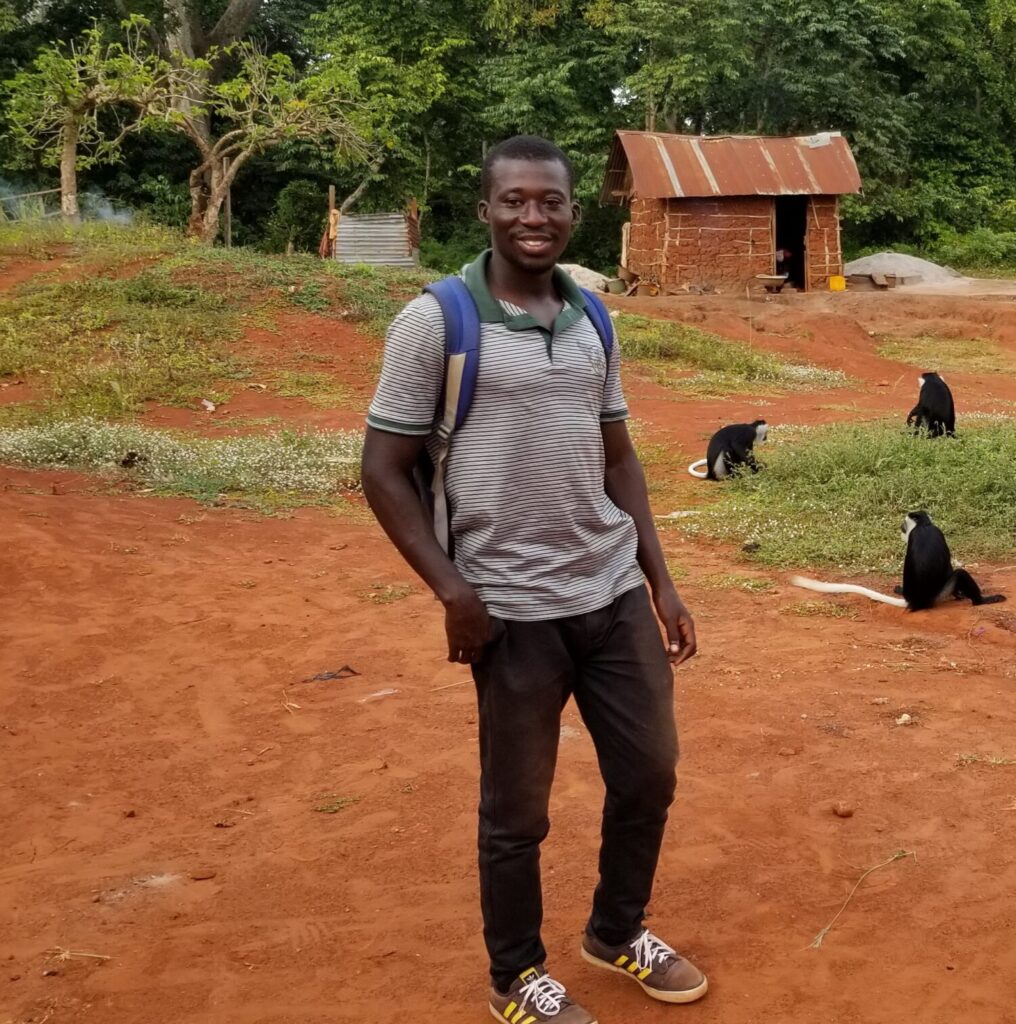
Bright Adu Yeboah, Ghana
Bright Adu Yeboah is from the village of Boabeng, a rural community in Central Ghana. After attending the University of Energy and Natural Resources (UENR) in Sunyani, Bright was appointed as a teaching and research assistant at the Department of Ecotourism, Recreation and Hospitality at UENR. During his time as a research assistant, he joined the Africa Bat Monitoring group and volunteered at the Boabeng-Fiema Monkey Sanctuary (BFMS) to improve the community’s understanding of non-human primate behaviors and to facilitate their coexistence within the community. He also worked as a field assistant in an international field school program at the BFMS, which was hosted by the University of Calgary in Canada. This experience piqued his interest in primatological studies in addition to his interest in conservation, tourism, and natural resource management. Bright then joined the MA program in Anthropology at the University of Calgary where his research focused on how ecotourism influences primate conservation and sustainable community development.
Bright applied and was accepted to the PhD program in Environmental Anthropology at the University of Texas, San Antonio (UTSA) with Dr. Eva Wikberg who has studied black-and-white colobus monkeys at the BFMS since 2006. Bright’s career goal is to become a lecturer at the University of Energy and Natural Resources in Ghana, which will allow him to recruit young researchers to be trained in biological anthropology.


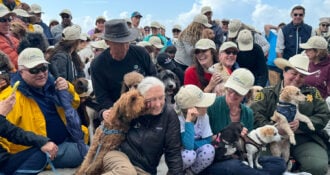
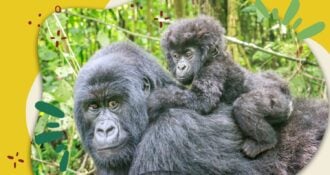

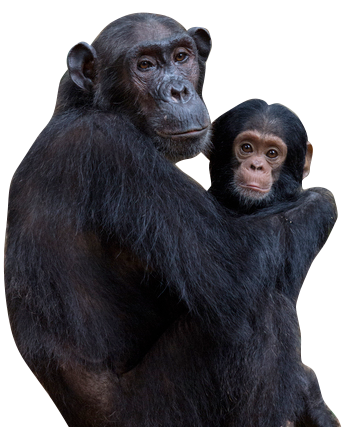
Comments 0